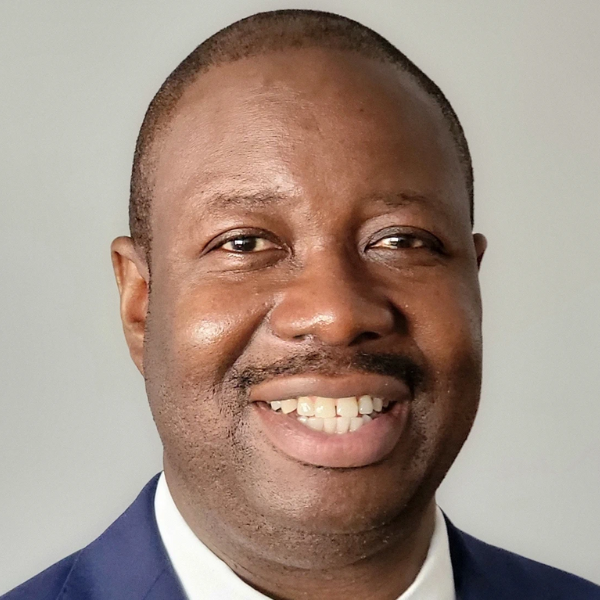Olorunseun “Seun” Ogunwobi, PhD

- Chair, Department of Biochemistry and Molecular Biology
- Department of Biochemistry and Molecular Biology
- Michigan State University College of Human Medicine
Bio
Dr. Olorunseun “Seun” Ogunwobi is the chair of the Department of Biochemistry and Molecular Biology and co-director of the forthcoming Center for Cancer Health Equity Research at MSU.
Born and raised in Ibadan, Nigeria, Ogunwobi received his medical degree from the University of Ibadan, the top-ranked university in Nigeria and one of the best universities in Africa. He would go on to earn a master's degree in biomedicine from the University of Hull, United Kingdom; a master's degree in clinical and translational science from the University of Florida, Gainesville; and a Ph.D. in molecular medicine from the University of East Anglia, Norwich, United Kingdom.
Ogunwobi was previously a professor of biology at the Hunter College of The City University of New York, founding director and principal investigator of the Hunter College Center for Cancer Health Disparities Research and an adjunct faculty member of the Joan and Sanford I. Weill Department of Medicine, Weill Cornell Medicine. He had been on the CUNY faculty since 2014.
Ogunwobi is also the co-founder of two New York-based startup companies, UTR Therapeutics Inc., a pre-clinical stage biotech company with a first-in-class technology that can overwrite any target of interest; and NucleoBio Inc., a developer of diagnostics tools designed to detect non-invasive urological cancer. He is also a contact principal investigator of the Synergistic Partnership for Enhancing Equity in Cancer Health, or SPEECH, funded by a U54 grant from the National Cancer Institute.
In addition to his leadership role in BMB, Ogunwobi is relocating his research group to MSU to continue his research. The overall goal of the lab is to better understand the molecular mechanisms of progression of solid cancers. The group is also investigating the biological mechanisms underlying racial disparities in specific solid cancers.

